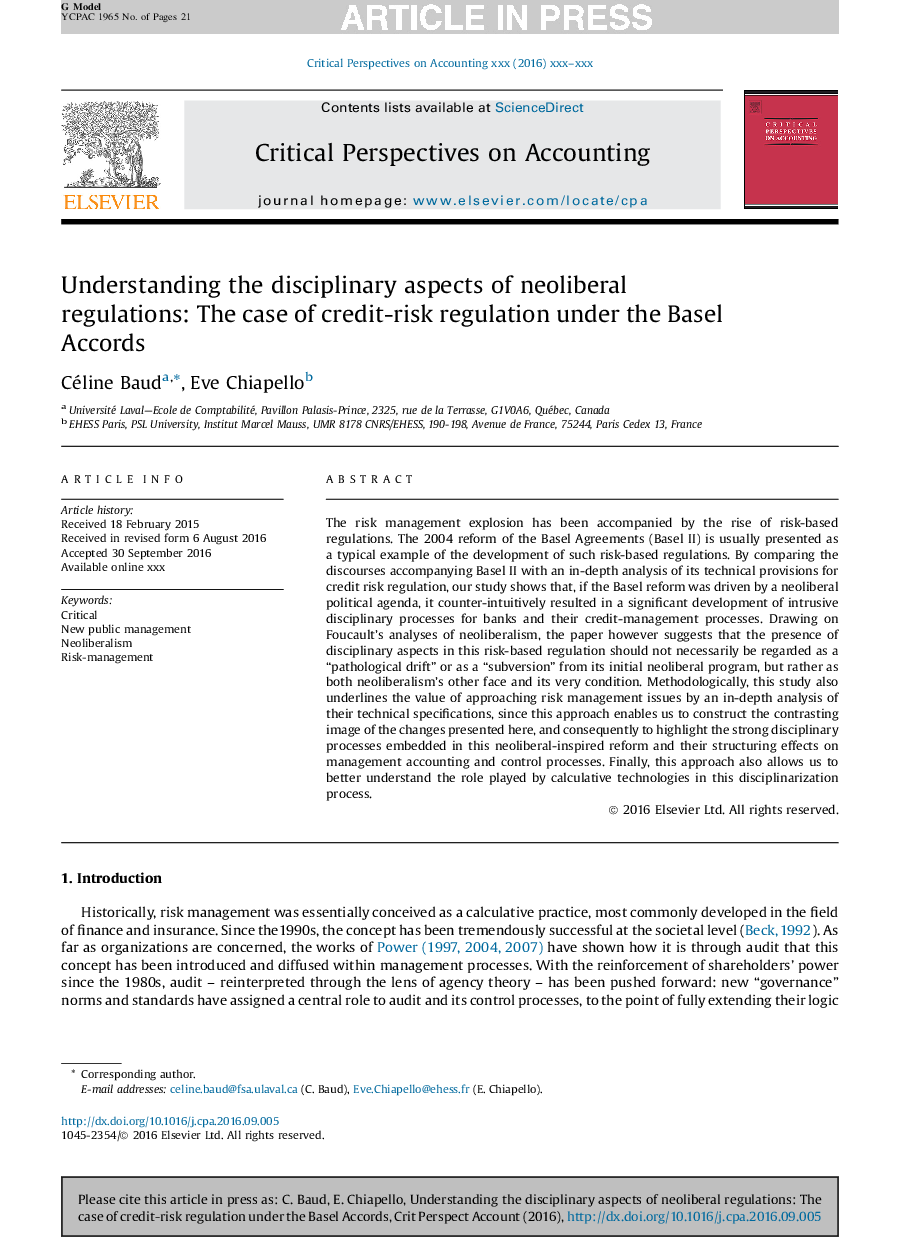ترجمه فارسی عنوان مقاله
درک جنبه های انضباطی مقررات نئولیبرال: مورد تنظیم ریسک اعتباری تحت موافقت نامه های بازل
عنوان انگلیسی
Understanding the disciplinary aspects of neoliberal regulations: The case of credit-risk regulation under the Basel Accords
| کد مقاله | سال انتشار | تعداد صفحات مقاله انگلیسی |
|---|---|---|
| 102672 | 2017 | 21 صفحه PDF |
منبع

Publisher : Elsevier - Science Direct (الزویر - ساینس دایرکت)
Journal : Critical Perspectives on Accounting, Volume 46, July 2017, Pages 3-23
ترجمه کلمات کلیدی
بحرانی، مدیریت عمومی جدید، نئولیبرالیسم، مدیریت ریسک،
کلمات کلیدی انگلیسی
Critical; New public management; Neoliberalism; Risk-management;

